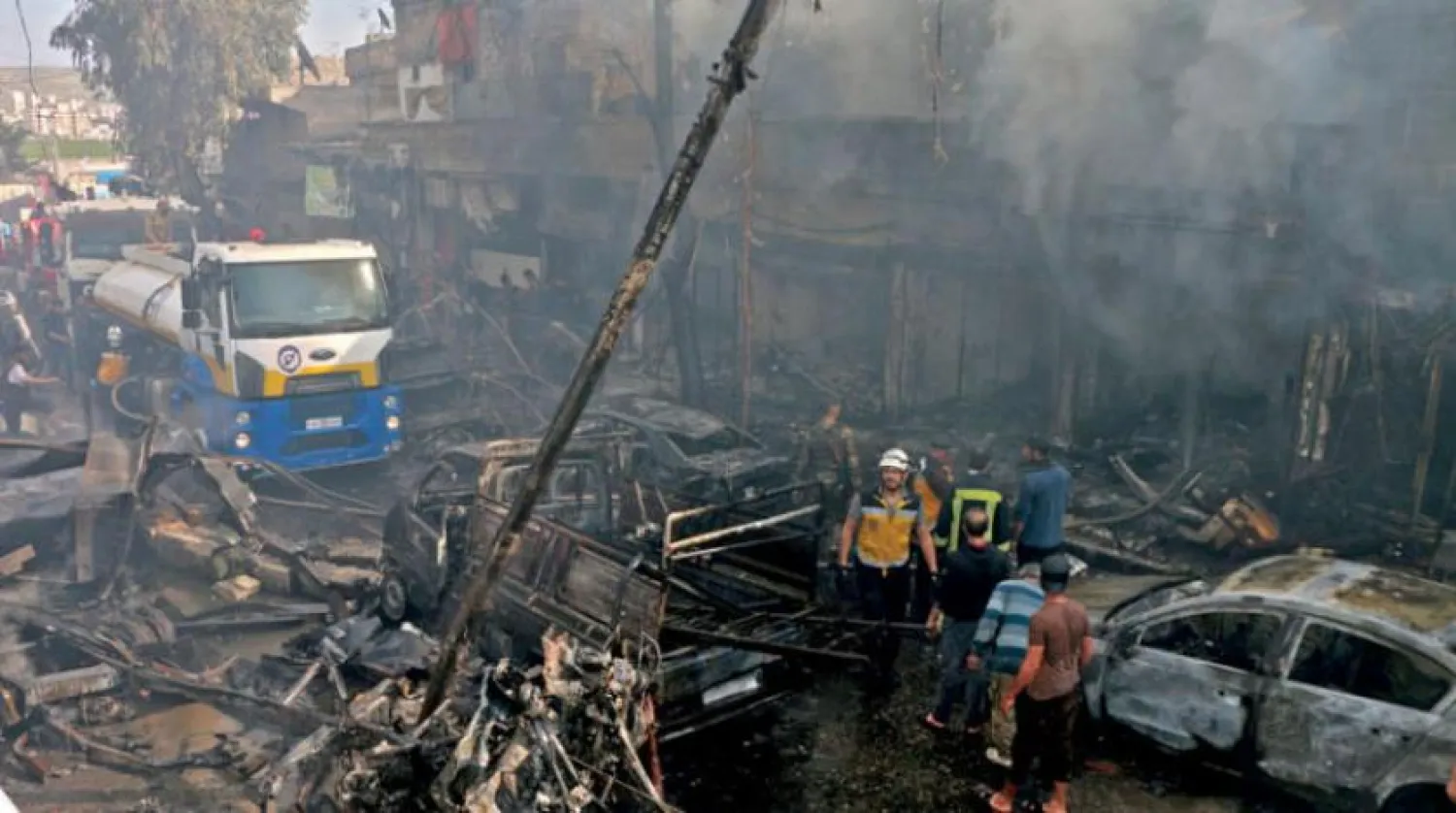Sources in Moscow revealed that Russian President Vladimir Putin is having hard times in dealing with President Bashar Al-Assad's stubbornness over several issues, at a time when Moscow started an active move on two diplomatic and military tracks related to Syria.
For the diplomatic track, Russian Deputy Foreign Minister in charge of Syrian affairs Sergei Vershinin contacted United Nations Special Envoy for Syria Geir Pedersen.
The Russian Foreign Ministry announced that the two sides discussed Syria’s prospects for a political settlement, the situation on the ground and the issue of humanitarian aid. The talks came on the eve of a regular UN Security Council session on Syria.
The Russian move carried several messages to the Syrian government and to Turkey, as state media quoted Russian air force officers saying that Moscow had begun operating military helicopters in areas where Turkey launched operations in Idlib.
Putin is insisting that Assad show more flexibility in talks with the Syrian opposition on a political settlement to end the nearly decade-long conflict, said four people familiar with Kremlin deliberations on the matter according to Bloomberg.
“The Kremlin needs to get rid of the Syrian headache,” said Alexander Shumilin, a former Russian diplomat who runs the state-financed Europe-Middle East Center in Moscow.
“The problem is with one person -- Assad -- and his entourage.”
Putin’s irritation and Assad’s obduracy highlight Russia’s dilemma because both sides know there’s no alternative to the Syrian leader in reaching a deal.
While Putin used his successful 2015 intervention in Syria to restore Russia’s Soviet-era influence as a major player in the Middle East, Assad has maneuvered between Moscow and his other main military backer, Iran, to retain his grip on power.
Assad has also leveraged Russia’s military and diplomatic strength against Turkey’s efforts to expand its presence in remaining rebel-held areas of northern Syria as he seeks to regain control over the whole country with Putin’s support.
Kremlin spokesman Dmitry Peskov denied that Putin is unhappy with Assad for refusing to compromise with Syria’s opposition in negotiating a political settlement.
Russia has pressured Assad behind the scenes for several years, without success, to agree to at least some token political concessions to win United Nations endorsement of his expected re-election in 2021. The openly voiced criticism of its ally marked a sharp change of approach.









